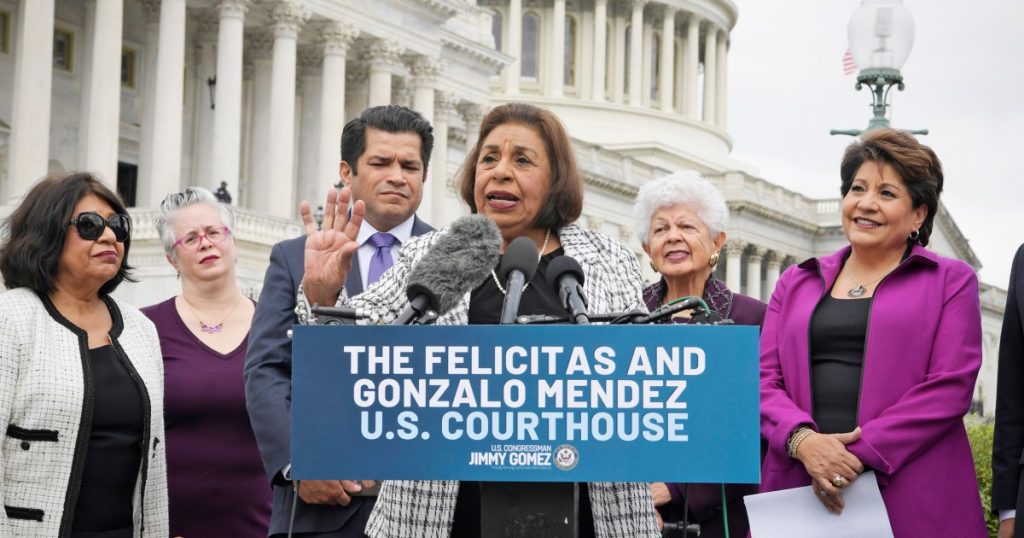The House passed bipartisan legislation to rename the Los Angeles U.S. Courthouse in honor of the Mendez family, who played a pivotal role in school desegregation. The bill aims to designate the courthouse as the Felicitas and Gonzalo Mendez United States Courthouse in recognition of their efforts to end school segregation in California in 1947. Felicitas Mendez, a Puerto Rican, and her husband, Gonzalo Mendez, a Mexican American, brought a lawsuit after their daughter was denied enrollment in a whites-only school. Their legal victory served as a blueprint for the landmark 1954 Brown v. Board of Education ruling, which declared segregation in public schools unconstitutional. This renaming would mark the first time a federal courthouse is named after a Latina, according to Rep. Jimmy Gomez, the bill’s main sponsor.
Gomez worked closely with Sylvia Mendez, the Mendez family’s daughter, in renaming the courthouse. The symbolic renaming of the courthouse would be a tribute to the enduring legacy of Latino Americans and the broader struggle for equality in the United States. Sylvia Mendez expressed immense honor and gratitude for the House passing the bill to memorialize her parents’ work and the families involved in the Mendez v. Westminster case. She emphasized the importance of creating a more equal society where access to education is not determined by skin color. The courthouse is located just blocks away from where the historic Mendez case was originally decided, highlighting its significance in the fight against segregation and discrimination.
The Mendez family’s legal battle began in the mid-1940s when Sylvia Mendez was denied enrollment at her neighborhood school due to her Latina heritage. Instead, she and other Latino children were forced to attend a substandard school designated for Mexican children. The Mendez family and four other families challenged the school district’s segregation practices in federal court, ultimately winning in 1946. A year later, the school district’s appeal was denied, leading to the end of segregation in California public schools. Thurgood Marshall, who later argued Brown v. Board of Education at the Supreme Court, used the legal framework of the Mendez case as a roadmap for the landmark ruling. Rep. Steven Horsford emphasized the continued fight for equality in education and the importance of honoring the Mendez family’s advocacy.
The renaming of the Los Angeles U.S. Courthouse in honor of the Mendez family serves as a reminder of the past injustices faced by minority communities and their ongoing fight for equality. The Mendez family’s courageous stand against segregation paved the way for significant legal victories that helped dismantle discriminatory practices in public education. The symbolic gesture of naming the courthouse after the Mendez family symbolizes the broader struggle for equality and justice in American society. The courthouse’s proximity to the location where the historic Mendez case was decided further highlights the significance of their contributions to the fight against segregation and discrimination. Overall, the bipartisan legislation represents a step towards commemorating the Mendez family’s legacy and their role in shaping the landscape of civil rights in the United States.


